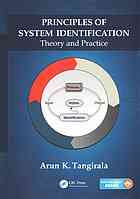

Most ebook files are in PDF format, so you can easily read them using various software such as Foxit Reader or directly on the Google Chrome browser.
Some ebook files are released by publishers in other formats such as .awz, .mobi, .epub, .fb2, etc. You may need to install specific software to read these formats on mobile/PC, such as Calibre.
Please read the tutorial at this link: https://ebookbell.com/faq
We offer FREE conversion to the popular formats you request; however, this may take some time. Therefore, right after payment, please email us, and we will try to provide the service as quickly as possible.
For some exceptional file formats or broken links (if any), please refrain from opening any disputes. Instead, email us first, and we will try to assist within a maximum of 6 hours.
EbookBell Team

4.1
20 reviewsVital to all data-driven or measurement-based process operations, system identification is an interface that is based on observational science, and centers on developing mathematical models from observed data. Principles of System Identification: Theory and Practice is an introductory-level book that presents the basic foundations and underlying methods relevant to system identification. The overall scope of the book focuses on system identification with an emphasis on practice, and concentrates most specifically on discrete-time linear system identification.
Useful for Both Theory and Practice
The book presents the foundational pillars of identification, namely, the theory of discrete-time LTI systems, the basics of signal processing, the theory of random processes, and estimation theory. It explains the core theoretical concepts of building (linear) dynamic models from experimental data, as well as the experimental and practical aspects of identification. The author offers glimpses of modern developments in this area, and provides numerical and simulation-based examples, case studies, end-of-chapter problems, and other ample references to code for illustration and training.
Comprising 26 chapters, and ideal for coursework and self-study, this extensive text:
• Provides the essential concepts of identification
• Lays down the foundations of mathematical descriptions of systems, random processes, and estimation in the context of identification
• Discusses the theory pertaining to non-parametric and parametric models for deterministic-plus-stochastic LTI systems in detail
• Demonstrates the concepts and methods of identification on different case-studies
• Presents a gradual development of state-space identification and grey-box modeling
• Offers an overview of advanced topics of identification namely the linear time-varying (LTV), non-linear, and closed-loop identification
• Discusses a multivariable approach to identification using the iterative principal component analysis
• Embeds MATLAB® codes for illustrated examples in the text at the respective points
Principles of System Identification: Theory and Practice presents a formal base in LTI deterministic and stochastic systems modeling and estimation theory; it is a one-stop reference for introductory to moderately advanced courses on system identification, as well as introductory courses on stochastic signal processing or time-series analysis.
The MATLAB scripts and SIMULINK models used as examples and case studies in the book are also available on the author's website: http://arunkt.wix.com/homepage#!textbook/c397